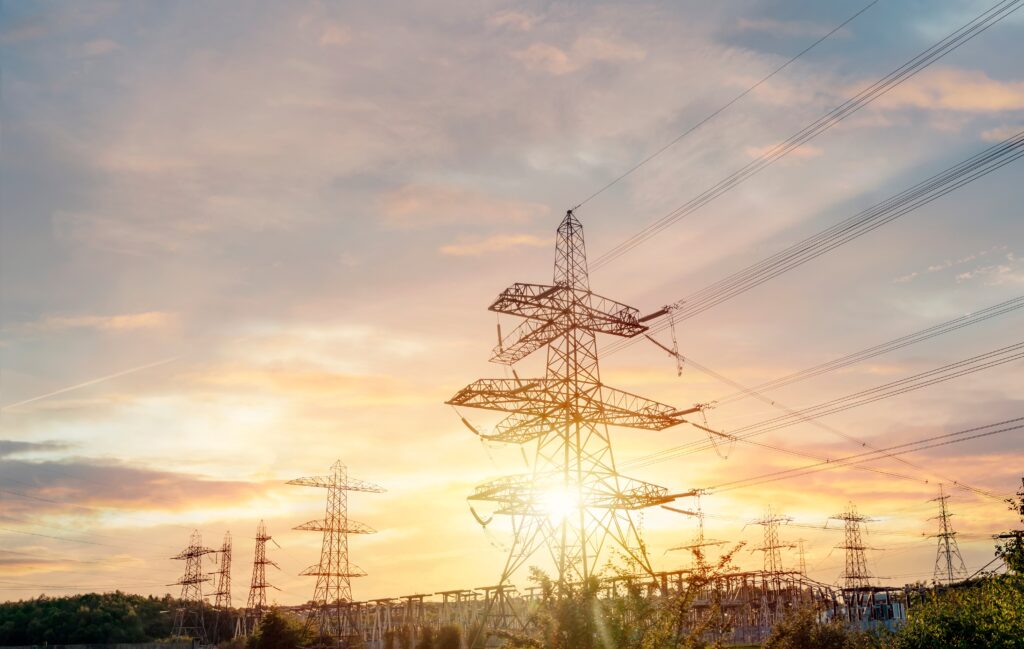The UK is facing a significant challenge when it comes to the capacity of its electricity grid.
As the country moves towards ambitious goals for decarbonisation and sustainability, it finds itself grappling with an increasing demand for energy, ageing infrastructure, and an insufficient supply of dependable, low-carbon electricity. This combination is putting enormous strain on the nation’s electricity capacity, leading to a host of economic, environmental, and social challenges. This article examines some of the issues surrounding the UK’s electricity grid and the growing risk of a lack of capacity.
The UK’s electricity demand has been steadily rising, driven by a number of factors, including population growth and urbanisation, which are contributing to a greater need for residential and commercial electricity.

In addition, the increasing trend toward electric vehicles (EVs), electric heating systems, and the adoption of smart technology are all placing additional pressure on the grid.
The government’s push toward decarbonisation, including the transition from fossil fuel heating and electric transport alternatives, is a vital part of meeting net-zero goals. The electrification of various sectors, however, places an unprecedented burden on the grid, leading to a need for the expansion of both renewable energy generation and the supporting infrastructure.
A key factor exacerbating the UK’s electricity challenges is the age of its power generation infrastructure. Many of the country’s existing coal and gas power plants are nearing the end of their operational lives. This poses a real concern as these traditional plants, while not entirely environmentally friendly, have provided reliable, base-load electricity.
The UK government has already committed to phasing out coal and reducing dependence on gas in the coming years. Renewable energy sources, such as wind and solar, have been key pillars of the UK’s strategy to reduce carbon emissions, but the transition has been slow and inconsistent. Wind power, while abundant in the UK, can be intermittent, and solar power is often insufficient during the winter months.
During times of calm weather or low sun, the output from wind and solar farms can fall sharply. The UK has experienced several instances in which wind power contributed less than 5% of the national grid’s supply. This inconsistency makes it difficult for renewable energy to act as a stable, base-load provider, which is crucial for keeping the lights on. As a result, the gap between demand and capacity is growing.
The reliance on renewable energy raises concerns about the need for back-up capacity during periods of low generation. While natural gas plants have often filled this gap, the UK is looking to decarbonise its gas usage as well, leaving a void that is hard to fill. The development of more reliable renewable energy storage solutions, such as large-scale battery systems, is a potential answer, but progress has been slow, and these technologies are still relatively expensive.

Capacity shortages and blackouts
One of the most concerning consequences of the UK’s electricity capacity issues is the increasing risk of blackouts. The National Grid has warned that the country could face significant energy shortages in the coming years, especially during cold winters when demand for heating spikes. If the grid cannot meet demand, rolling blackouts or energy rationing may become necessary.
The lack of energy storage infrastructure only amplifies this issue. While countries like Germany and the United States have made significant strides in developing energy storage systems, the UK has lagged behind in building sufficient capacity to store excess energy for use during low-generation periods. As a result, during times of low renewable output, the grid is left vulnerable to shortages.
Addressing the UK’s electricity capacity problem is going to require substantial investment in energy generation and infrastructure. The government has been pushing for increased investment in offshore wind farms, nuclear power, and other green technologies but the pace of investment has not kept up with the growing demand.
Additionally, the process of upgrading the UK’s electricity grid itself, which is necessary to accommodate new renewable energy sources and ensure more reliable distribution, is expensive and time-consuming. The shift to decentralised power generation, such as rooftop solar and small-scale wind turbines, requires substantial upgrades to the grid to prevent overloading and power loss.
Energy security concerns
The issue of electricity capacity also touches on concerns about energy security. The UK’s reliance on imports of natural gas, especially from countries like Norway and Qatar, makes it vulnerable to disruptions in supply. Additionally, the geopolitical situation in Eastern Europe, particularly the ongoing conflict between Russia and Ukraine, has shown how energy security can be jeopardised by external events.
This reliance on external sources of energy, combined with the unpredictability of renewable sources, highlights the need for a more diversified and resilient energy mix that combines reliable, low-carbon sources with back-up solutions for times of shortage.
Rising electricity prices, driven by the increasing cost of gas and infrastructure upgrades, put financial strain on households and businesses. The increasing cost of energy is a major concern for the UK’s economy, particularly for energy-intensive industries, which may relocate abroad if electricity prices rise too high.
For vulnerable households, energy poverty is a growing issue, with many facing difficult choices between heating their homes and paying for food or other essentials. A shortage of electricity would only exacerbate these social inequalities, as those least able to afford higher energy costs will be most at risk.
While the push toward renewable energy is essential for meeting carbon reduction targets, the challenges of ensuring a reliable and sufficient electricity supply are becoming more pronounced. To address the growing risks posed by a lack of electricity capacity, the UK must accelerate investment in energy infrastructure, bolster energy storage solutions, and ensure that new technologies can provide a stable and flexible energy supply. Without immediate action, the country could face more frequent outages, higher costs for consumers, and a potential setback in its environmental goals.
Contact Jon Newsham on 01604 212828 or email jon.newsham@apertusgroup.co.uk
Find out more about Apertus Group via our website.




















